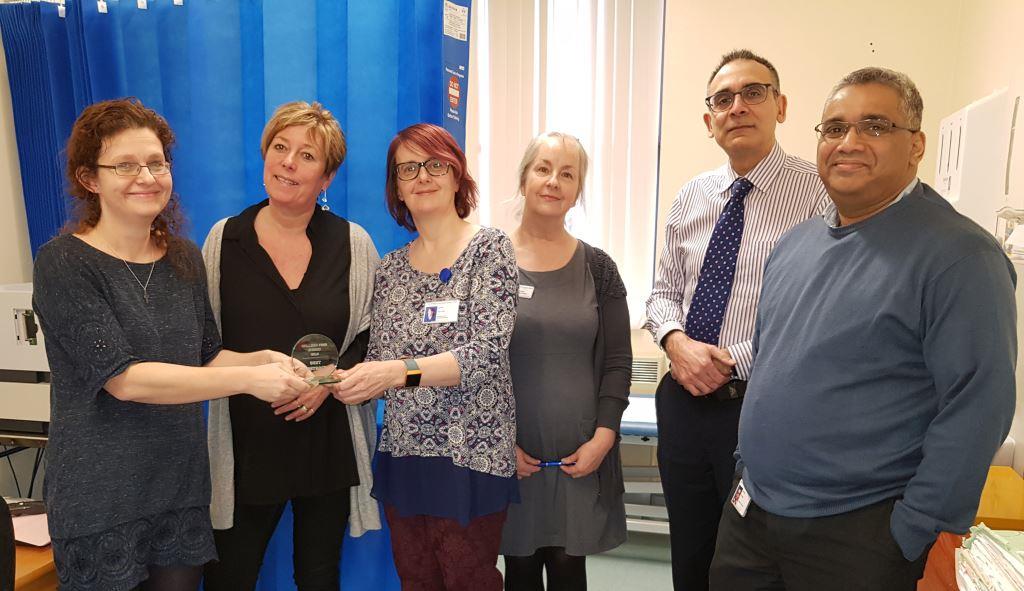News from our partners: Breast surgeon wins research award
News from our partners Shrewsbury and Telford Hospital NHS Trust (SaTH)
A breast surgeon at Shropshire’s two acute hospitals has been awarded a research prize in recognition of her outstanding contribution to patient care and innovation.
Mrs Blossom Lake, a breast surgeon at SaTH, which runs the Princess Royal Hospital in Telford and the Royal Shrewsbury Hospital, was presented with the award for her work entitled ‘Magseed for localisation of impalpable breast cancers is associated with high patient satisfaction and lower excision rates’.
The award was presented to Blossom at the recent William Farr event, which was held at the Shropshire Conference Centre, and celebrates the life and work of William Farr as the ‘Father of Medical Statistics’.
Blossom, a keen advocate for research in breast cancer who has presented internationally and nationally, said:
“Research is key to patient treatment of breast cancer to provide the best individualised care for each patient.
“Traditionally, wired guidance is used to localise impalpable breast cancers. Whereas Magseed localisation uses a small radiation-free seed to localise breast cancer without the need of wire placement.
“This has been recently trialled at SaTH and our studies showed that Magseed excision is safe and feasible with lower re-excision rates and has high patient satisfaction. It allows significant service improvement with reduction in both radiological and surgical localisation timing, improved pre-operative process and flexibility in radiological provision.”
Dr Kevin Eardley, Care Group Medical Director at SaTH and organiser of the William Farr event, said:
“The event, now in its second year, provides people with a great opportunity to hear about the life of William Farr and how is work still influences our lives today.
“His upbringing was in poverty until he was adopted at the age of seven in 1817. His education was basic but he had an insatiable desire to learn. He was taken under the wing of the Salop Infirmary’s Physician, a Dr Webster, and here he learnt medicine.
“Ultimately moving to London he became the first in the world to use medical statistics to highlight social and sanitary factors that affected health and well-being of the population. He supported other key figures of the time, including Florence Nightingale, with whom he was very close. His work today and statistical methods are still used today to help address health inequities and therefore I believe should be better recognised locally.”


